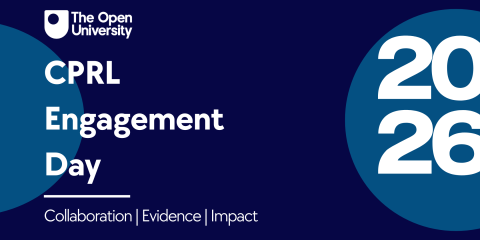Digitally enabled policing
Below you will find our most recent research projects from 2020 onwards.

Live projects
2.22 How can we coach adults to change profound beliefs? A mindset based approach. The aim is to test a short growth mindset intervention, delivered via an app that encourages reflection, to motivate and improve capacity of managers.
Completed projects
2.24 Strategic Training Needs Analysis for Artificial Intelligence. This project involves conducting a comprehensive STNA to evaluate a police organisation's readiness to adopt AI across all roles and ranks.
2.23 Herts AI test and learn. This research conducts an early review of the use of AI in the statement taking process to understand if productivity gains in terms of time savings can be made alongside improved statement quality and consistency.
2.21 Evaluation of Virtual Reality as an effective learning tool to enhance police training in child protection. The aim is to evaluate the effectiveness of the use of immersive videos related to child protection issues.
2.20 Can coercive control behaviour be identified through Machine Learning?. The aim is to investigate whether coercive control behaviours can be identified through automated data analysis techniques.
Archived projects
Below you will find our archived projects that were conducted from 2014-2019.
2.15 Prospecting chatbots as a communication platform to tackle cyber grooming. Investigating the viability of using chatbots as a communication channel for the police to tackle online grooming
2.14 Citizen Forensics. A multi-disciplinary investigation which encourages citizens to help the police collect and analyse disparate data to improve public safety.
2.09 Building sustainable policing practitioner communities online. Project used 'nQuire-it' platform to generate data through 'citizen inquiry' methodology (the use of scientific method by the public to raise and resolve problems).
2.08 Systems Thinking and Complexity Science for Policing. This project introduced the basic ideas of systems thinking and complexity science, and enabled police practitioners to apply it to real problems from their professional experience.
2.06 Game-based Learning for Police Training in Child Interviewing. This research project developed a training simulation system for child witness interview training.
2.04 Strategies for effective social media engagement. This project aimed to identify key strategies for effective social media engagement by police forces.
2.02 Enhanced engagement of public via social media. What are the best message-writing practices to generate a higher level of social media engagement?
2.01 Detecting grooming behaviour on social media. Developing self-protection tools to automatically identify predators.
News
What does the next decade of evidence-based policing look like? Join us for the CPRL Engagement Day on 21 January 2026
This event provides a collaborative and welcoming environment for shared practice, reflection, and strategic direction-setting. Together, we will explore how our partnership can drive forward the next generation of research, innovation, and professional learning across UK policing.
